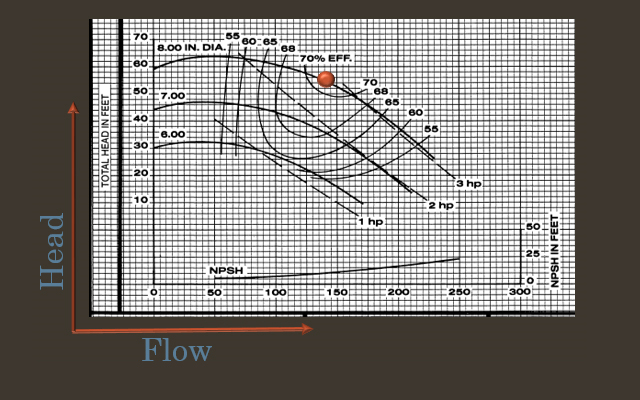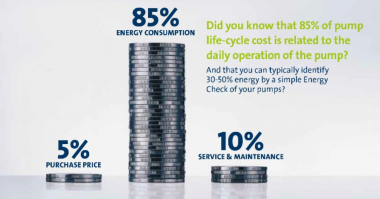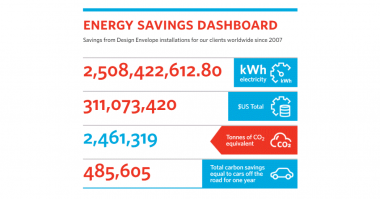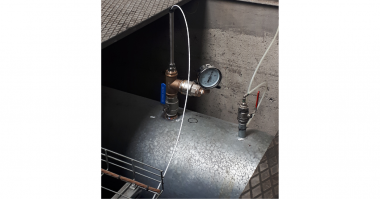Energy consumption in water and wastewater treatment facilities can account for a significant portion of a local governments’ operating budget. Pumps and other equipment operating continuously throughout the year make these facilities one of the largest energy consumers – about 4% of the energy used in the U.S. according to the EPA.
Have we reached the limit of pump system performance once variable frequency drives (VFDs) and premium efficient motors have been installed? No! The opportunities for energy reduction and cost savings go well beyond the motor and drive – we must look more closely at the pump itself and take a systems assessment approach.
It is critical to look at the operating performance of pumps as the operating efficiency of these pumps significantly affects the energy consumption of water / wastewater facilities. In wastewater plants, pumping system electrical usage is 20-30% of total energy consumption, and 46% in municipal water pumping systems. Energy costs are an estimated 75% of pump lifecycle costs, so improving pump efficiency has been proven to reduce operating costs.
Before you can take steps to improve pump efficiency, you must first determine how the pump is operating in your system. If your pump is operating too far away from its best efficiency point (BEP), pump efficiency decreases, operating costs increase, and maintenance issues can arise. If you have a system that requires frequent bearing replacement, has had motor failures, or premature wear of the pump, these maintenance issues may suggest that your pump is operating too far away from its BEP and might be a “red flag” that tells you it’s time to performance test your pumps.
Pump performance testing helps identify opportunities for improving efficiency and reducing costs
Performing efficiency testing of pump systems using portable instrumentation is critical not only to maintaining pump performance, but in identifying cost saving opportunities. Many of the pumps JKMuir has tested at water / wastewater facilities are operating at least 15 to 20 percentage points below their rated efficiency. The additional energy usage associated with this reduced efficiency can increase costs by as much as 40%. Consistent pump testing enables owners and end users to compare data to original pump performance, helping them evaluate efficiency options and quantify cost savings.
How is pump efficiency measured and monitored?
Efficiency testing requires Flow monitoring, Pressure instrumentation to determine pump head, Power (kW) measurements, and Data loggers to evaluate energy use changes over varying system conditions. Pump efficiency is measured by performing field readings and assessing the volumetric flow rate of the pump, total dynamic head, and the kilowatt draw of the pump. The equation below shows how pump efficiency is affected by these parameters.
Improving Pump Efficiency is Worth It!
Consider performance testing your pumps as you look for ways to save energy and reduce operating costs. Monitoring pump operating parameters can not only reduce operating costs, but can also be an important part of asset management and predictive maintenance. Technology is currently available that allows for continuous monitoring and real time assessment of pump performance, providing optimization for dynamic environments and applications.
Click here to learn more about Pump System Optimization.
If you’d like to learn more about pump performance testing, contact me at jenmuir@jkmuir.com.






Comments